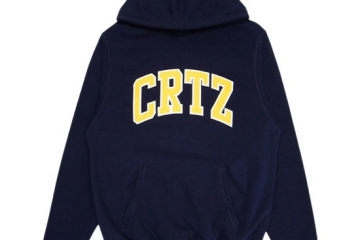Skip bins are a fantastic solution when it comes to removing large volumes of waste from your home, garden, or worksite. But before you load one up, it’s crucial to know what you can and can’t put in a skip bin. Putting the wrong items inside can lead to additional charges, refusal of collection, or even environmental harm.
This article breaks down exactly what’s allowed and what’s not—so you can hire a skip bin confidently and avoid any nasty surprises.
✅ What You Can Put in a Skip Bin
When you organise a skip bin hire, you’re essentially renting a space for rubbish disposal. But not all bins are the same. Some are designed for general waste, others for green waste, and some for heavy construction materials. Let’s take a look at the items commonly accepted.
1. General Household Waste
This includes:
- Old furniture
- Toys and clothes
- Packaging
- Paper and cardboard
- Broken appliances (without hazardous parts)
- Kitchenware
If you’re doing a home declutter or garage cleanup, a general waste bin is the best choice. It’s a simple, cost-effective option for cheap skip bin hire needs.
2. Green Waste
Perfect for garden projects, you can dispose of:
- Grass clippings
- Tree branches
- Weeds
- Leaves
- Plants and shrubs
Make sure there’s no soil or general rubbish mixed in, or it might be rejected.
3. Construction and Renovation Waste
If you’re renovating, you’ll be glad to know you can toss in:
- Bricks and concrete
- Plasterboard
- Timber
- Tiles
- Steel and metal scraps
Just be aware of weight limits—some skip bins have maximum loads, especially when it comes to heavy materials.
4. Office and Commercial Waste
You can also dispose of:
- Paper waste
- Old equipment
- Office furniture
- Light construction debris
Great if you’re moving offices or upgrading a workspace.
❌ What You Can’t Put in a Skip Bin
While skip bins are versatile, there are strict rules around certain hazardous or problematic items. When you hire a skip bin, your provider should give you a list of prohibited materials—but here’s a general guide:
1. Asbestos
Asbestos is highly dangerous and never allowed in standard skip bins. It must be handled by licensed removalists with special containers. If asbestos is found in your bin, you could face heavy fines and cleanup costs.
2. Batteries
Car batteries and other types contain acid and heavy metals, making them hazardous. They should be taken to a proper battery disposal or recycling facility.
3. Chemicals and Paint
Paint tins, solvents, pesticides, and other chemical products can’t go in a skip bin. These items are considered hazardous waste and must be taken to a designated drop-off location.
4. Gas Bottles and Fire Extinguishers
Even if they appear empty, these containers are pressurised and pose an explosion risk. Contact your local waste centre for safe disposal options.
5. Tyres
Most skip bin companies don’t accept tyres due to the difficulty in recycling and extra disposal fees. Some providers may allow them for an additional charge—ask in advance.
6. Food Waste
Food scraps and perishables are generally not allowed unless you’ve arranged a special bin. They attract pests and cause hygiene issues during transport.
7. E-Waste (Electronics)
Old TVs, computers, and appliances with circuit boards or lithium batteries often need to be recycled separately. Check if your local council offers a free e-waste drop-off service.
8. Liquids
Oils, fuels, paints, and other liquids are not permitted in skip bins. These can leak, cause fires, or contaminate recycling processes.
Special Note: Mixed Waste Bins
If your project involves a bit of everything—say, old furniture, garden waste, and renovation debris—ask your provider about a mixed waste skip bin. These are more flexible but often cost slightly more.
Using a mixed waste bin can be a smart way to keep things simple if you’re not sure how to sort everything.
Tips for Responsible Skip Bin Use
To get the most out of your skip bin hire, follow these best practices:
- Don’t overfill the bin: Waste should not rise above the rim. Overfilled bins may not be collected.
- Load it smartly: Break down large items and place flat objects at the bottom to save space.
- Keep an eye on weight limits: Heavy materials like concrete or bricks can quickly exceed the allowed load.
- Check the list: If in doubt, ask your provider what’s allowed before tossing it in.
Why the Rules Matter
Skip bins aren’t just about convenience—they also help protect the environment. Proper sorting and disposal help reduce landfill, support recycling, and ensure dangerous materials are handled safely.
When you hire a skip bin, you’re also agreeing to follow waste guidelines. Avoiding prohibited items protects you from fines and helps your provider do their job efficiently.
Final Thoughts
Knowing what you can and can’t put in a skip bin makes the process much smoother and ensures your waste is handled responsibly. Whether you’re tackling a home renovation, garden cleanup, or just decluttering, understanding these rules is key.
So, before you book your next cheap skip bin hire, double-check your rubbish, follow the guidelines, and reach out to your provider with any questions. That way, you can clear the clutter without creating extra stress—or unexpected fees.


